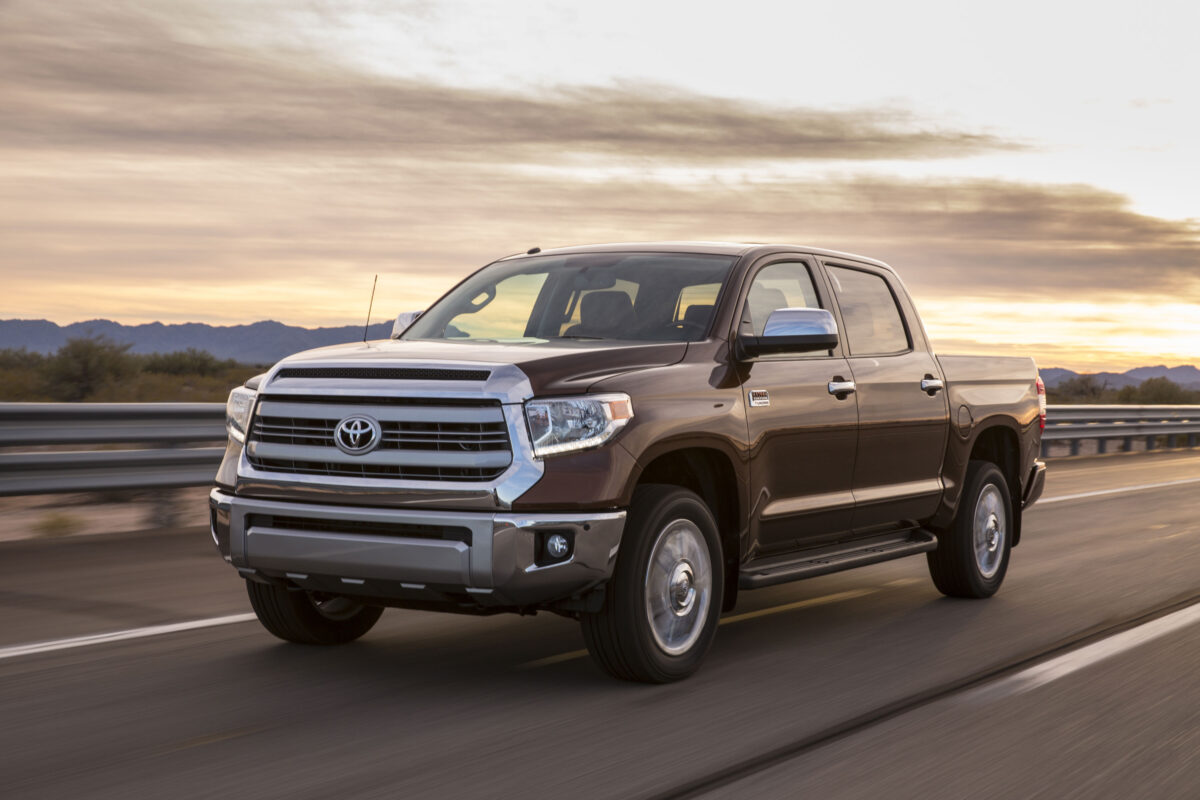
Toyota’s Tundra large pickup is about to get a major upgrade. According to a WardsAuto forecast, the next-generation Tundra, expected to debut in 2016, will be equipped with a 5.0L turbodiesel V-8 from engine-maker Cummins. This engine is the same one that will be used in the upcoming Nissan Titan full-size truck.
Details about the engine’s specifications for the Tundra are not yet clear. However, the Cummins diesel engine is expected to produce over 300 horsepower and more than 500 lb.-ft. of torque in the Nissan Titan. With the new Tundra, Toyota aims to offer a powerful and efficient option to cater to the demands of car enthusiasts and meet future fuel efficiency regulations.
It is worth mentioning that Toyota had previously been working on its own diesel engine for the Tundra, in collaboration with its heavy-truck subsidiary Hino. However, the project was put on hold due to the global economic downturn. Nonetheless, with more stringent Corporate Average Fuel Economy (CAFE) regulations in the U.S., which call for a fleet target of 54.5 mpg by 2025, a diesel option is now seen as a necessity for the Tundra.
If the Cummins diesel engine proves to be popular among consumers, it could inspire Toyota to reintroduce its own diesel project. Although a diesel engine would come with higher development and certification costs compared to gasoline engines, the potential benefits, especially in terms of fuel efficiency and towing capabilities, make it a worthwhile investment.
With the introduction of the Tundra and the upcoming Nissan Titan, light-duty diesel pickups are becoming more prevalent in the U.S. market. Chrysler already offers a light-duty diesel V-6 engine in the Ram 1500, which has received praise for its performance and fuel efficiency. Ford continues to offer the 6.7L Power Stroke V-8 in its F-Series medium-duty pickups, while General Motors has indicated its interest in reviving its long-shelved 4.5L turbodiesel V-8 for light-duty applications. Additionally, Nissan showcased a 2.8L 4-cylinder turbodiesel engine from Cummins in its Frontier midsize pickup at the recent Chicago Auto Show, gauging consumer feedback for potential production.
As the demand for more efficient and capable trucks grows, the introduction of a Cummins diesel engine in the Toyota Tundra is a significant development. Car enthusiasts can look forward to a formidable combination of power, torque, and fuel efficiency, all wrapped in the trusted Toyota brand. Stay tuned for more updates as the next-generation Tundra prepares to take the road by storm.
FAQs
Q: When will the next-generation Toyota Tundra with the Cummins diesel engine be released?
A: The next-generation Tundra, featuring the Cummins diesel engine, is expected to debut in 2016.
Q: Will Toyota develop its own diesel engine for the Tundra in the future?
A: If the Cummins diesel engine proves successful in the Tundra, there is a possibility that Toyota may reconsider its own diesel engine project.
Q: How does the Cummins diesel engine compare to other diesel engines in the market?
A: While the specifics of the engine for the Tundra are not known yet, the Cummins diesel engine is highly regarded for its power and torque capabilities.
Q: What are the benefits of a diesel engine in a pickup truck?
A: Diesel engines offer increased torque for towing and hauling, better fuel efficiency, and potentially lower emissions compared to gasoline engines.
Conclusion
With the inclusion of the Cummins diesel engine, the next-generation Toyota Tundra is set to raise the bar in the world of pickup trucks. Toyota’s collaboration with Cummins ensures that Tundra owners will have access to a powerful and efficient engine, capable of tackling any task with ease. As the demand for more fuel-efficient vehicles continues to grow, the introduction of a diesel option in the Tundra reflects Toyota’s commitment to meeting the needs of car enthusiasts while adhering to environmental regulations. Stay tuned for more updates on this exciting development.